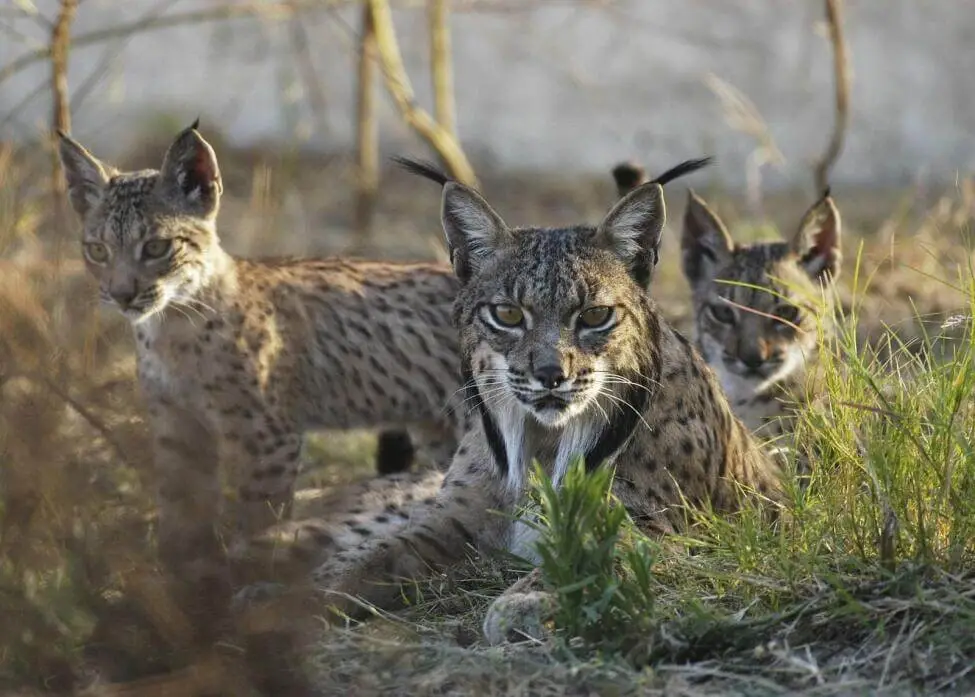Madrid, Spain (AFP) – The number of endangered Iberian lynx in the wild in Spain and Portugal has nearly doubled since 2020 to surpass 2,000 last year, the Spanish government said Friday.
A total of 722 lynx were born in 2023 bringing their total number in the two countries to 2,021, a record high since monitoring of the species began and up from 1,111 just three years earlier, Spain’s environment ministry said in a statement.
This rise “allows us to continue to be optimistic about the reduction of the risk of extinction of the Iberian lynx,” it added.
Known for its pointy ears, long legs and leopard-like spotted fur, the species was on the brink of extinction just two decades ago due to poaching, road accidents and encroachment on their habitat by urban development, as well as a dramatic decline due to disease in wild rabbits numbers, the lynx’s main prey.
When the first census of the spotted nocturnal cat was carried out in 2002, there were fewer than 100 specimens in the Iberian Peninsula.
The ministry party attributed the boom in lynx numbers to the success of a captive breeding and reintroduction programme launched in 2011. Since then, 372 lynx born in captivity have been released into the wild.
“The recovery of the Iberian lynx population in Spain and Portugal constitutes one of the best examples of conservation actions for endangered species in the world,” it said.
The ministry said the Iberian lynx population has continued to rise since 2015, when the International Union for Conservation of Nature downgraded the threat level to “endangered” from “critically endangered — its highest category before extinction in the wild.
Most Iberian lynx can be found in the Donana national park and Sierra Morena mountains in the southwestern region of Andalusia, but the conservation programme has reintroduced captive-bred animals to the Spanish regions of Castilla-La Mancha, Extremadura and Murcia, as well as Portugal.
ds/mg/gv
© Agence France-Presse
Featured image: Iberian Lynx mother with two cubs who born in the Program Ex-situ Conservation Program, in 2005 Credit: Ex-situ Conservation Program of the Iberian Lynx | CC BY 3.0 ES




